Are you sure you want to sign out?
Eligibility, application process, documents required.
- Frequently Asked Questions

Sources And References
Something went wrong. please try again later., you need to sign in before applying for schemes, it seems you have already initiated your application earlier. to know more please visit, check eligibility, zero ticket bus travel scheme for women.
- Free bus travel in Tamil Nadu government buses.
- No Need to Pay any Fare up to 30 Kilometers.
- Only women will be eligible.
- Women should be permanent Residents of Tamil Nadu.
- There is a travel limit of 30-kilometers.
No formal application is needed. Women simply board the bus and request a zero-value ticket from the conductor.
- Any one of the below-mentioned documents will be shown by Women Beneficiary to the Bus Conductor at the time of traveling to avail of the benefit of the Tamil Nadu Zero Ticket Bus Travel Scheme for Women:-
- Aadhar Card.
- Voter Identity Card.
- School Identity Card.
- College Identity Card.
- Employee Identity Card.
- Or Any Other Photographed Identity Card.
What is Tamil Nadu Zero Ticket Bus Travel Scheme for Women?
The scheme is to provide to eligible women/ transgender beneficiaries of Tamil Nadu under the Zero Ticket Bus Travel Scheme for Women, Free of Cost Travel in Government of Tamil Nadu Buses. No Need to Pay any Fare up to 30 Kilometers.
Who is Eligibili for this Scheme?
Only, Women who are Permanent Residents of Tamil Nadu.
Is there an application Process?
No, There is no need to apply anywhere for the Tamil Nadu Zero Ticket Bus Travel Scheme for Women.
There is any kilometers limits?
Women Beneficiary can only travel for free in government run buses up to 30 kilometers within the Tamil Nadu State.
Is bus travel free for women in Tamil Nadu?
Yes, Women can travel free only in ordinary buses. Tamil Nadu is the only state where such a restriction applies.
How does the government fund the Zero Ticket Bus Travel Scheme for Women?
The scheme is funded by the state government as part of its commitment to promoting women's mobility, safety, and empowerment.
Is pre-registration or application required to benefit from the Zero Ticket Bus Travel Scheme?
In most cases, there is no need for pre-registration or a separate application process. Women can simply board the designated buses to avail of the free travel benefit.
News and Updates
No new news and updates available
Quick Links
- Screen Reader
- Accessibility Statement
- Terms & Conditions
Useful Links

Get in touch
4th Floor, NeGD, Electronics Niketan, 6 CGO Complex, Lodhi Road, New Delhi - 110003, India
support-myscheme[at]digitalindia[dot]gov[dot]in
(011) 24303714
- chennai News
Women benefit from zero-ticket bus scheme

Visual Stories

- Lok Sabha Results 2024
Zero ticket bus travel scheme reduces women's dependence: Survey
The survey which was conducted in Chennai, Nagapattinam, Tiruppur, and Madurai districts revealed that women from rural families benefited more than urban users.

Representative Image
CHENNAI: The Zero-Ticket Bus Travel (ZTBT) scheme for women has achieved its objectives with a survey conducted by the State Planning Commission of Tamil Nadu revealing that it has reduced dependence of women on their family members for mobility and fosters new opportunities for social networks and learning.
"Among the users of the scheme, 39 per cent are belonged to Scheduled Caste (SC), 21 per cent belonged to MBC and 18 per cent are belonged to BC. Almost 50 per cent of the women passengers are above 40 years of age, " said a release from the state government.
"About 49.06 lakh women travel by bus per day in the year 2023-2024. The share of women among the total passengers is 66.03 per cent. About 3,013 people of third gender travel in city buses and they all save between Rs 756 to Rs 1,012 per month. The average savings of women per month is Rs 888," it added.
For this zero ticket bus travel, Tamil Nadu government recently allocated Rs 2,800 crore for this year 2023-24.
Therefore, the state government said that the women sampled for this study were less dependent on family members for their travel needs and they are being treated with respect.
"They also said that this scheme will contribute to their empowerment. Most of the women said that the amount saved through this scheme is used for their additional household expenses, " the release added.
DTNEXT Bureau
Related articles.


- Select State

Tamil Nadu Zero Ticket Bus Travel Scheme for Women

Add new comment
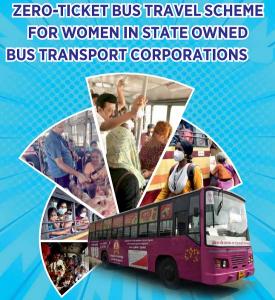
- Free of Cost Travel in Government of Tamil Nadu Buses.
- No Need to Pay any Fare up to 30 Kilometers.
- Tamil Nadu Department of Social Welfare & Women Empowerment Contact Numbers.
Introduction
- Tamil Nadu Government announces and implement lots of scheme for the welfare of people of Tamil Nadu.
- One of the social welfare scheme for Tamil Nadu Women is Zero Ticket Bus Travel Scheme.
- It was announced and launched in the year 2021.
- The main objective behind launching Zero Ticket Bus Travel Scheme is to encourage women of Tamil Nadu for higher work participation and reduce the dependency on private mobility.
- Most of the Working Women, Girls Students and Women Labourers doesn't have their own convenience to commute one place to another.
- They regularly pay for travelling fare which overburden them financially.
- So to unburden the Women of Tamil Nadu financially, Government came up with a idea to provide free of cost travel in government run buses.
- Under Tamil Nadu Zero Ticket Bus Travel Scheme, No women have to any fare if they are travelling in Government of Tamil Nadu run buses.
- Zero Fare Ticket will be issued to women beneficiary at the time of travelling.
- Free of cost travel in government run buses will only valid up to 30 kilometers.
- Women Beneficiary has to carry one photographed identity card for verification purpose.
- Transgenders are also eligible for free of cost travel under Zero Ticket Bus Travel Scheme of Tamil Nadu.
- Free of Cost Bus Service will only provided in Tamil Nadu Government run Ordinary/ City Buses or Buses operated under the control of Tamil Nadu State Transport Corporation.
- There is no need to apply anywhere to avail the benefit of free of cost travel in buses.
- Women Beneficiary can directly travel free of cost under Zero Ticket Bus Travel Scheme for Women of Government of Tamil Nadu.
Benefits of Scheme
Eligibility criteria.
- Women Should be a Permanent Resident of Tamil Nadu.
Documents Required
- Aadhar Card.
- Voter Identity Card.
- School Identity Card.
- College Identity Card.
- Employee Identity Card.
- Or Any Other Photographed Identity Card.
How to Apply
- There is no need to apply anywhere for Tamil Nadu Zero Ticket Bus Travel Scheme for Women.
- Eligible Women Beneficiary of Tamil Nadu will directly avail the benefit of free of cost bus service in Tamil Nadu Government Run Buses.
- But there is a kilometer limit in this scheme.
- Women Beneficiary can only travel for free in government run buses up to 30 kilometers within the Tamil Nadu State.
- Photographed Identity Card for verification purpose is needed at the time of travelling.
- Beneficiary Women can directly take the government run buses and avail the benefit of free of cost travel.
Important Links
- Tamil Nadu Social Welfare & Women Empowerment Portal.
Contact Details
I am worked in trichy i need bus pass
Please issue bus passes I am…
Please issue bus passes I am student
Pass for college erode
Any pass facility
is aadhar card enough
- No HTML tags allowed.
- Lines and paragraphs break automatically.
Rich Format
Follow us on:
Janata Weekly
India’s oldest Socialist Weekly!
Editor: Dr. G.G. Parikh | Associate Editor: Neeraj Jain | Managing Editor: Guddi
Freebie or Freedom? Tamil Nadu’s Free Bus Travel Scheme for Women
- Sumana Narayanan
- November 26, 2023

Janata Weekly at your finger tips!
Register to get Janata Weekly into your mailbox and whatsapp!
In June 2023, Karnataka launched a scheme making public buses free for women to enable greater social inclusion. The reaction on X (formerly Twitter) was telling. A post by a woman holding up her free ticket attracted a lot of flak with people noting that she looked like she could afford to pay for public transport. The question of why men had to subsidise women’s travel was also raised by many.
While X may not be an accurate index of public sentiment, members of the Citizen consumer and civic Action Group (CAG) who spoke to a few male bus passengers, bus conductors, and consumer rights activists found that most of them shared these sentiments. But women do seem to think very differently. Though the impact of Karnataka’s scheme remains to be seen, there are similar programmes in Tamil Nadu, Delhi, and Punjab that have been operating for longer.
Overview of Free Bus Schemes
Tamil Nadu’s free bus scheme for women was launched in mid 2021 to ensure the greater social inclusion of women. However, not all buses are free. Public buses have different service categories—ordinary (aka whiteboard), express, deluxe, and a/c Volvo—and the fares for each of these vary. Women can travel free only in ordinary buses. Tamil Nadu is the only state where such a restriction applies. In most cities and towns in the state, the ordinary buses are the largest part of the fleet (around 70% to 80%), barring Chennai, where they constitute less than 50% of the fleet.
Karnataka began its free bus scheme for women in June 2023. It is valid across all categories of buses except a/c Volvo but is limited to women who can show proof of domicile. The government has announced it will issue Shakti cards to women whose domicile details are verified but women can now show any government-issued identification card to get zero value tickets on buses.
Delhi’s scheme is open to all women, with no proof of domicile required, while in Punjab, proof of domicile is a prerequisite. But neither of them restricts the scheme to specific bus categories—Delhi’s scheme is even valid on the airport shuttle bus.
In 2023, the Chennai-based CAG studied the Tamil Nadu model to gauge its impact on women’s mobility. The report titled “Fair Fares: Towards Gender-Inclusive Public Transport” is to be published shortly and will be available on the CAG website.
Promoting Social Inclusion
Research has shown that women’s mobility is restricted by social norms. It is assumed that the burden of domestic duties must be borne by women. Therefore, working outside the home may be acceptable as long as domestic duties are not neglected. In many families, concerns about safety are voiced (sometimes valid) to prevent women from working outside the house or stepping out at “odd hours”.
Women who do work outside the home often find access to safe, convenient, and affordable transport very difficult. If the family owns a private vehicle, it is typically earmarked for the men of the house, with the woman’s need for it accorded a very low priority. This is assuming she has learnt to ride or drive.
Women who do not work outside the home also have mobility needs for domestic duties (shopping, children’s education, healthcare needs). They usually resort to walking or using public transport. With the poor quality of public transport, women tend to spend far more time than men in commuting. All this limits their participation in the labour workforce.
Two years after the scheme was introduced in Tamil Nadu, the CAG interviewed 3,000 women across six cities in the state, including Chennai, the capital city. The lack of access to private transport was reflected in the survey with just 339 women reporting that they sometimes used two-wheelers. The use of two-wheelers was lowest in Chennai and highest in Salem, followed by Coimbatore.
Of the interviewees, 341 women said that the scheme had not changed their travel patterns while 2,659 women said yes, it definitely had—they now used the free bus service more often than they used the paid service earlier. However, most of these women had been using public buses for several years. Only 204 women reported that they had begun using the public bus in the past year. While we cannot assess the impact of the scheme on women entering the workforce, it is clear that more women are using the free buses. This indicates that women are more mobile than they used to be, thus aiding their social inclusion.
For many of the women interviewed, the scheme was useful in that they did not have to think twice about taking a bus. In the past, they would have weighed their options—take the bus or walk to save the bus fare. Many of them also said that they had switched from taking share autos, autos, and two-wheelers to the public bus, making a case for promoting sustainable transport.
Investment in the Future
A common narrative in the media and among bus passengers is that the women are now being subsidised by hard-working males who not only have to earn for their families but also pay for the women through their taxes. This simplistic view does not consider where the money saved by women goes.
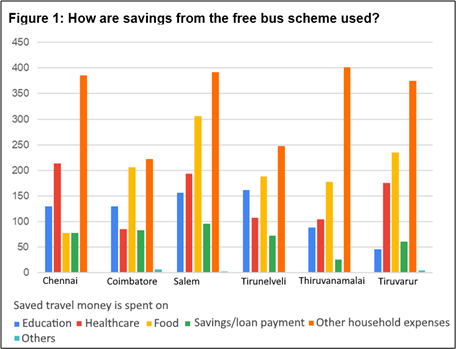
Source: The CAG’s survey
Of the 3,000 women interviewed, 2,000 said they saved more than Rs. 400 per month. Nearly 20% of the women reported saving between Rs. 400 and Rs. 600 and another 20% said they saved between Rs. 600 and Rs. 800 per month. This aligns with the savings reported by A Report on the Zero-Ticket Bus Travel Scheme for Women – I , a study by the Tamil Nadu State Planning Commission in June 2022 (a year into the scheme).
According to the women in the CAG’s study, the money saved was used largely for household needs (2,024 women), food (1,191), education (879), and healthcare (712). [The women respondents could mention more than one are of use of the money saved.] Only 18 women said that they spent the money saved from not paying bus fares on non-family expenses. Clearly, the women are investing the money saved in their families’ health and future, the benefits of which will accrue to the country.
It is often overlooked that transport planning in India does not factor in the needs of different user groups and is largely tailor-made for the average working man. Women typically take multiple short trips during the day as they fit in domestic duties along with work outside the house. The public transport fare structure in India penalises those who take short trips (more expensive). So the average man who commutes to work by bus or train pays less for the same distance than a woman who does it over multiple trips.
The frequency of the transit service also caters only to this male demographic with service being better during peak hours and very poor during off-peak hours. Women who work in the informal sector or have complex travel patterns spend a considerable amount of time waiting for the bus.
Women May Loiter
The CAG’s study sought to understand the purposes for which women were using the bus now that it was free. Almost one fourth (734) of the women interviewed said that the scheme allowed them the freedom to indulge in leisure activities such as visiting temples or spending time on the beach or in a park. We understood that because transport was an added cost, they would not have indulged in such activities before the free bus scheme.
A larger benefit of having more women stepping out, whether for work or leisure, is that it increases the visibility of half the population. Societal norms being such that loitering in public spaces is understood to be a privilege of men, it is rare to find women hanging around on the road or buying themselves a cup of tea from a roadside stall. Leisure activities contribute to the physical and mental well-being of all—men and women. A study on public parks in South Asia found that women from low-income households in Chennai frequented parks to get some “me time”, to socialise, to vent frustrations, and to allow their children to play in a safe place.
Crowded Buses, Poor Frequency
While the scheme in Tamil Nadu has been welcomed by women, they point out that the buses are now very crowded. The scheme is applicable only in ordinary buses that stop at all bus stops on the route. With the ordinary buses in Chennai being fewer in number than all the other categories combined, there is considerable crowding. In other cities, most of the buses are ordinary but fleet sizes are small, which also leads to crowding. Chennai has more than 750 routes served by 3,436 buses, of which 1,556 are ordinary buses. Longer routes mean the turnaround time for a bus is longer, leading to poor frequency.
Data to Improve Services
A major difficulty in evaluating the impact of the free bus scheme has been the lack of data on passenger usage. Bus corporations in the state do not collect gender-segregated data or data on travel patterns. As mentioned earlier, women travel differently than men but the lack of data has helped mask this.
Transport planning is done mainly for the average salaried man. To gather more data, at greater granularity, digital systems such as smart cards will be needed though traditional surveys will still gather valuable information. Digital systems can tell the service provider who is travelling, where, and when, and this can help optimise resource allocation—how many buses to deploy at different times and in different places.
Other than the complex logistics and investment required for such systems, the main drawback is that many citizens still prefer traditional paper tickets and cash payments because they are not comfortable with these new technologies. A 2022 study on passenger information systems in Chennai by the CAG, Navigating Unchartered Territories , found that less than one fourth of regular public transport users (bus and train) use apps to access information on service timings or to pay for tickets. This is despite 86% of them having a smartphone. Many poor and marginalised people are not electronically documented, and do not have the time or inclination to visit government offices to process paperwork for things such as smart cards.
Karnataka’s scheme, which calls for women to apply for smart Shakti cards, may be a means of garnering crucial information and it could perhaps morph into a National Common Mobility Card in the future. However, requiring paperwork penalises and excludes those who need the scheme the most. In that sense, Tamil Nadu’s scheme is open to all women. It requires no paperwork, is simple and easy to implement, and it reaches its core target group.
However, the one drawback to understanding the impact of the free bus scheme is the lack of gendered travel data. So the question that the state and service providers need to address is how to ensure easy accessibility while also gathering better data.
Ironing out Wrinkles
Tamil Nadu’s free scheme has been running successfully for two years. Women appreciate the scheme and its benefits are there to be seen—the number of women availing themselves of the scheme has grown three times in two years; more women are stepping out for work and leisure; and women are saving money, which they are investing in their family’s future.
No scheme or plan is perfect. There are the issues of crowding, hostile comments from male passengers, and poor frequency of buses. From a broader transport planning perspective, there is an abysmal lack of granular data on transport and travel patterns, especially in cities like Chennai, which have begun the process for developing their next master plans. One way to address crowding would be to make the scheme valid on other bus categories as well. The low bus frequency is a longstanding problem that can be solved with political will and new investment in public transport.
The free bus scheme could also benefit if the government could provide a better narrative around it so that the public understands why providing a fare concession to women is a win-win solution. Sensitising the transport provider’s staff to this would also be useful. Finally, it would be wise to continue investing in regular traditional surveys and studies while digital systems are gradually eased in.
(Sumana Narayanan is a Senior Researcher at the Citizen consumer and civic Action Group (CAG), Chennai, working on sustainable mobility and road safety. Courtesy: The India Forum, an independent online journal-magazine that seeks to widen and deepen our conversations on the issues that concern people.)
Janata Weekly does not necessarily adhere to all of the views conveyed in articles republished by it. Our goal is to share a variety of democratic socialist perspectives that we think our readers will find interesting or useful. —Eds.

Contribute for Janata Weekly
Help us increase our readership.
If you are enjoying reading Janata Weekly, DO FORWARD THE WEEKLY MAIL to your mailing list(s) and invite people for free subscription of magazine.
Our Friends
Also read in this issue:.
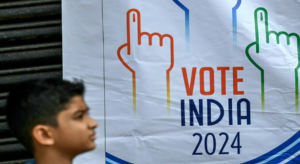
Lok Sabha Election Results: This Is the Collective Win of Millions – 4 Articles
‘Who Does June 4 Belong to?’; ‘A New Dawn’: With no one party with a clear majority, it means a return to the days of more parliamentary influence on governance; ‘Results That Give Hindutva a Jolt’; ‘Voters Force Narendra Modi to Become a Labharthi of his Allies’.

When Einstein Called “Fascists” Those Who Rule Israel for The Last 44 Years…
Albert Einstein had dared to send this “scandalous” open letter to the New York Times, 73 years ago. Also: ‘Even If It Avoids Civil War, Israel’s Final Crisis Looks Cataclysmic!’
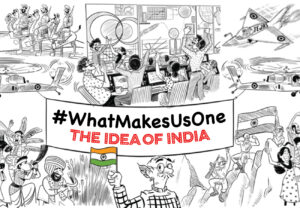

What Makes India an Idea?
The idea of India will always exceed all that is said about it, or against it.
If you are enjoying reading Janata Weekly, DO FORWARD THE WEEKLY MAIL to your mailing list(s) and invite people for free subscription of magazine.
Sign Up to get E-mail Newsletter Now!
Janata Weekly is India’s oldest independent socialist weekly. Ever since its founding in 1946, Janata has voiced its principled dissent against all conduct and practice that is detrimental to the cherished values of nationalism, democracy, secularism and socialism, while upholding the integrity and the ethical norms of healthy journalism. For more than seventy years now, week after week, it has continued to analyse the changes taking place in the country and the world from a socialist standpoint, and thus promote the spread of socialist ideology in the country.
Important Links
Subscribe to Janata Weekly
Address: D-15, Ganesh Prasad, Naushir Bharucha Marg, Mumbai- 400007.
Subscribe to Janata Weekly Newsletter & WhatsApp Channel
Help us increase our readership. If you are enjoying reading Janata Weekly, DO FORWARD THE WEEKLY MAIL to your mailing list and invite people to subscribe for FREE!
- Scroll to top

Policy Documents
- “Tamil Nadu State Land Use Research Board (TNSLURB)-Inviting New Research Proposals for the year 2024-25-Last Date-30.08.2024” (New)
- “Tamil Nadu Innovation Initiatives ( TANII) First Round- New Proposals called for the year 2024-25” (New)
- State Planning Commission Newsletter March-2024 (New)
- Tamil Nadu Heat Mitigation Strategy-2024 (New)
- Evaluation of Non-Communicable Disease Cascade Care under Makkalai Thedi Maruthuvam in Tamil Nadu (New)
- An Evaluation Study on the Effectiveness of Implementation of Government Schemes in the Tribal Villages in the State of Tamil Nadu (New)
- The issues of Malnourishment in the first 1000 days of children in Tamil Nadu specific reference to Convergence (New)
- A Report on the Low Emission Zoning-a Toolkit for Chennai (New)
- A Report on the International Workshop on the Management of Forest Invasive Species in Tamil Nadu (New)
- A Report on the Effective Management of Prosopis juliflora in the Southern Districts of Tamil Nadu (New)
- A Report on the Sustainable Seaweed Farming in Tamil Nadu- Way Forward (New)
- The Rapid Assessment of Tamil Nadu Urban Employment Scheme (New)
- Evaluation of Semester-End Question Papers of State Universities in Tamilnadu (New)
- Regional Growth Pattern in Tamil Nadu (New)
- A Report on the Zero-Ticket Bus Travel (ZTBT) Scheme for Women – Phase-1 (New)
- A Report on the Zero Ticket Bus Travel( ZTBT) Scheme for Women-Phase-2( New)
- Multidimensional Poverty Index for Rural Tamil Nadu
- Rural Diversification and Socio-Economic Differentiation in Tamil Nadu- Some Policy Inferences
- All India Debt & Investment Survey 2019 – A Note on Tamil Nadu Data
- Agricultural Households of Tamil Nadu – A Profile
The State Planning Commission serves as an apex advisory body to the Government of Tamil Nadu. Its primary role is to provide evidence-based policy guidance , aimed at fostering holistic growth and development within the state. Under the guidance of the Honourable Chief Minister, the Commission actively engages in the formulation, implementation, and evaluation of policies, with a specific focus on development, economic growth, social welfare and innovation .
The Commission reviews and monitors Government welfare programs to ensure effective delivery to the grassroots levels . It works closely alongside sectoral Government Departments, promotes knowledge sharing and facilitates collaborative initiatives for the State’s progress.

Thiru. M.K. Stalin
Agricultural policy and planning, industries, power and transport, education and employment, health and social welfare, rural development and district planning, plan coordination, administration.
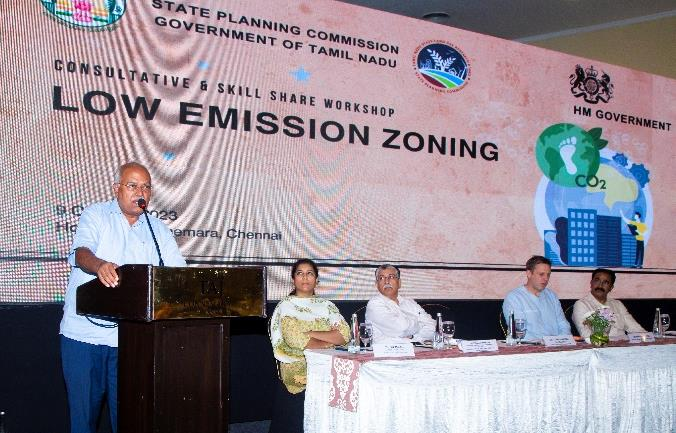
SPC in the News
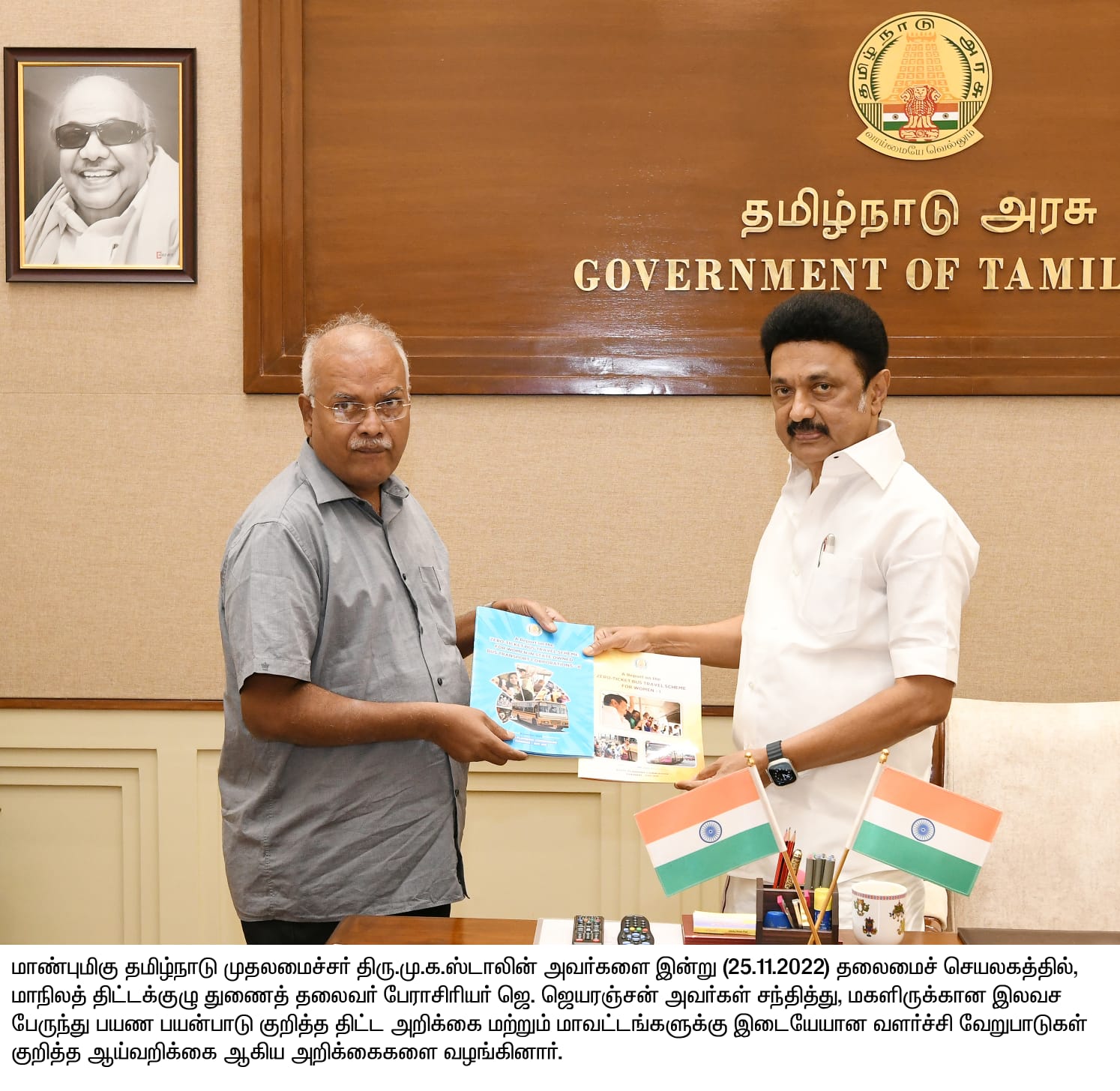

List of Indian States Offering Free Bus Rides For Women (2024)

In 2019, Delhi became the first state to offer free bus rides for women, setting a precedent for empowering women through mobility. Today, several states offer similar initiatives, including Telangana’s recent addition. Discover the complete list of Indian states that are utilizing free public transport to foster gender equality and social inclusion.
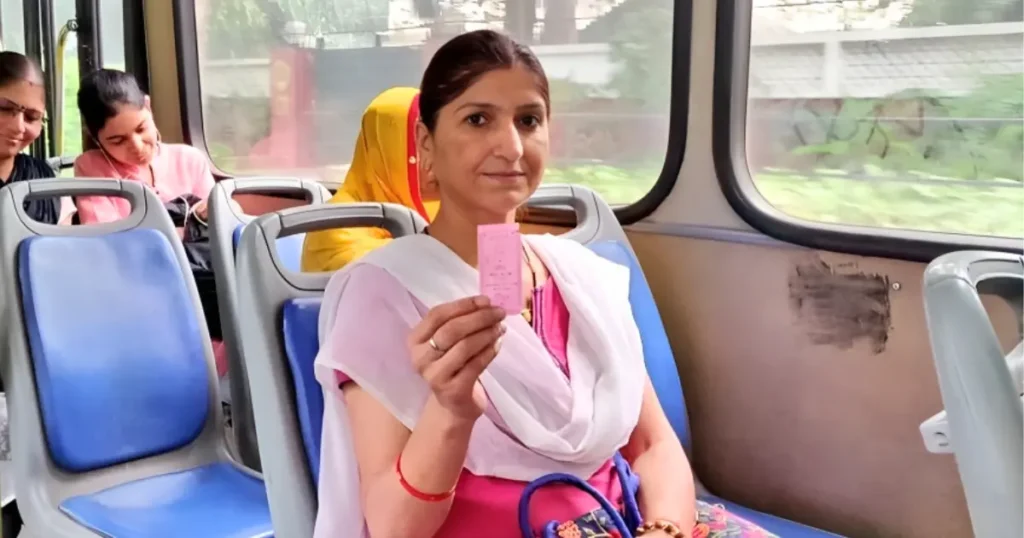
Telangana marked a significant milestone on Saturday by introducing free bus rides for women and transgender individuals.
The government’s bus scheme extends free travel privileges to women, girls, students, and the third gender, allowing them to utilize city ordinary and metro express services in Hyderabad without any cost.
Comprising 48% of the 1.4 billion populace, women are progressively emerging as an important electoral segment. Hence, political parties across the country are increasingly focusing on women-centric welfare schemes to appease women voters.
Whether a sincere welfare initiative or a political maneuver, these free transport schemes for women successfully empower women in India, providing them with greater freedom, accessibility, economic opportunities, and a step towards fostering equality.
Despite being a substantial part of the population, women’s participation in the Indian workforce is relatively low, with only 23% representation compared to 32% in Bangladesh and 34.5% in Sri Lanka, according to World Bank data.
Experts have highlighted how high bus fares act as a deterrent to women seeking employment, impacting their already modest wages.
Subsidized commuting can play a crucial role in encouraging more women to join the workforce.
By offering free transportation, women are not only encouraged to seek employment but also explore opportunities beyond their immediate vicinity, all while enjoying substantial cost savings.
As states across India adopt similar measures, the impact of free bus rides for women is becoming a powerful catalyst for positive change.
Also Read: 5 Women Bus Drivers From India Who Dared to Challenge Traditional Notions of Gender Equality
List of Indian States Providing Free Bus Rides for Women in 2024
Let’s take a look at all the states in India providing free bus rides for women.
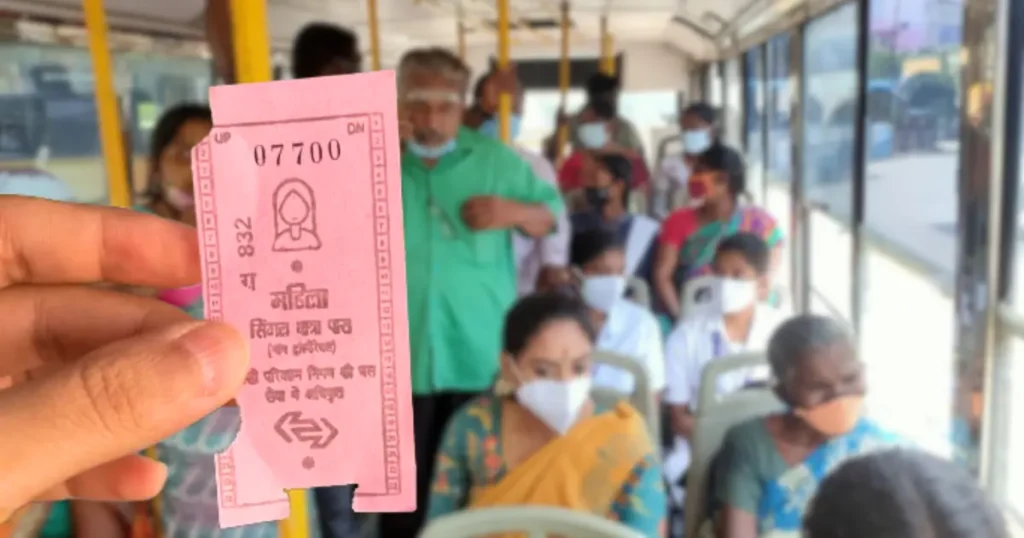
Named the Pink Ticket Pass, the free bus travel initiative for women in Delhi was introduced in October 2019 under the governance of the Aam Aadmi Party (AAP).
Pioneering the nationwide concept of offering free bus rides for women, Delhi became the first state to implement such a scheme.
This Pink Ticket Pass permits women to travel in all DTC buses and cluster buses (both AC and non-AC) without paying.
In the fiscal year 2021-22 alone, women availed themselves of 13.04 crore free trips on DTC buses and 12.69 crore on cluster buses .
By January 2023, a staggering 100 crore “pink tickets” have been utilized .
Historic day for Delhi !!! Females will travel free in all Buses from 29.10.19. Notification has been issued. Delhi Govt under dynamic leadership of Honble Cm @ArvindKejriwal stands committed to ensure safety and security of Female passengers in Buses. pic.twitter.com/kPwXNkjgH3 — Kailash Gahlot (@kgahlot) October 28, 2019
2. Tamil Nadu
In May 2021, the Tamil Nadu government introduced an initiative allowing free bus rides for women commuters.
Called the Zero-Ticket Bus Travel (ZTBT) Scheme for Women, it allowed women to travel free of cost on government-operated regular-fare buses within cities and towns in the state, specifically for distances up to 30 kilometers. Women are provided with zero-fare tickets when utilizing these bus services.
The Zero-Ticket Bus Travel (ZTBT) Scheme for Women has proven to be a significant boon for female passengers throughout the State, offering a multitude of advantages.
According to a study by the State Planning Commission of Tamil Nadu released in November 2022, the free bus rides for women initiative has proven to be a grand success and helped the women of the state. It has aided in:
- Increasing their disposable income
- Facilitating greater involvement of women in the workforce
- Reducing reliance on family members for transportation
- Creating fresh opportunities for social connections and learning experiences.
The study further states that the Zero-Ticket Bus Travel (ZTBT) Scheme for Women has helped women save up to Rs. 1012 per month.
Statistically, the average women passenger succeeded in saving 11.4% of her monthly income through this initiative, with economically vulnerable users such as daily wage workers in agriculture/construction, street vendors, and domestic workers saving around 14% of their monthly income.
Also Read: Where is Coimbatore’s Viral Lady Bus Driver Sharmila in 2024?
3. Karnataka
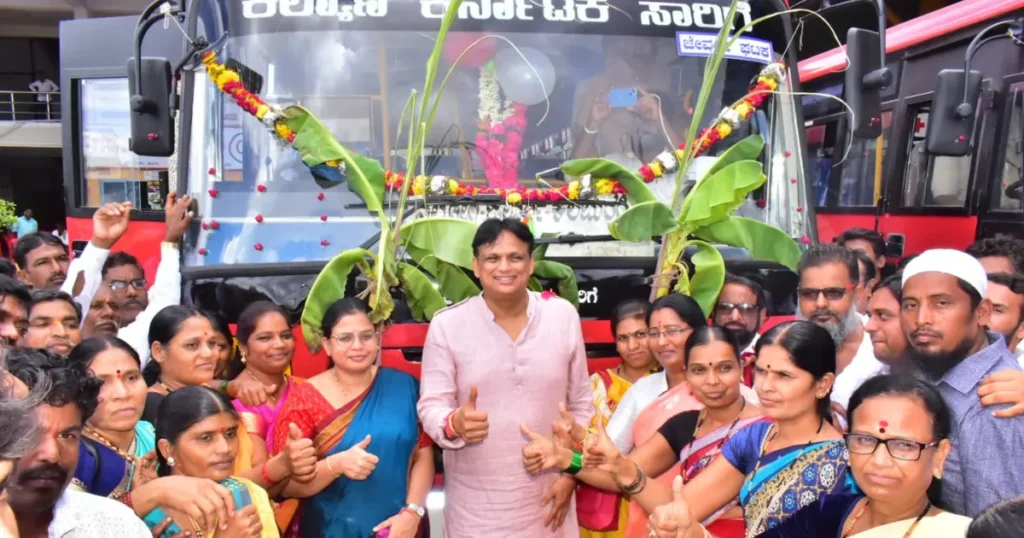
Launched on June 11, 2023, the Shakti scheme was introduced promptly after the Indian National Congress came to power in Karnataka .
The scheme allows free bus rides for women in all state-owned, non-AC buses including KSRTC, BMTC, NWKRTC, and KKRTC.
Under the Shakti Scheme, female beneficiaries are entitled to complimentary rides exclusively in Ordinary, Urban Transport, Express, and Regular Transport Buses. Notably, there is no minimum kilometer limit imposed for availing of this cost-free transportation benefit.
To avail the benefits of the free bus ride for women under the Shakti Scheme, a Smart Card is mandatory. Women beneficiaries can obtain this card by submitting an online application form under the Shakti Scheme, and the issuance of the Smart Card is free of charge.
'Shakti' 💪🚍 The wheels of change are in motion as free bus travel for women in Karnataka becomes a reality! Boosting workforce participation, unlocking economic potential & fueling women's progress. ✊ With every step, we're bridging the gender gap, empowering women to soar… pic.twitter.com/yOya8EWiME — Congress (@INCIndia) June 11, 2023
While awaiting the receipt of their Smart Card, women beneficiaries can present any photographed identity including Aadhar Card, Driving License, or Voter Identity Card.
According to the Karnataka Transport Department, from June 11 to November 22, women in Karnataka have collectively taken 1,004,756,184 rides under the Shakti scheme.
BMTC has secured the top spot by providing an impressive 32.69 crore free bus rides to women under the Shakti scheme.
The cumulative value of the free tickets issued under the Shakti scheme amounts to ₹2,397 crore, as reported by the Karnataka Transport Department.
Also Read: Long Weekend Travel Trends by Bus: Abhibus Insights 2024
4. Telangana
On December 9, 2023, Telangana Chief Minister A. Revanth Reddy launched the Maha Lakshmi Scheme that provides free bus rides for women, girls, and transgender individuals in state-owned RTC buses.
Women and transgender individuals of all ages, as well as girls aged 6-12, are eligible to travel in Palle Velugu, Express, City Ordinary, and City Metro buses
To avail themselves of the benefits, women need to present acceptable identity documents that confirm their residential address. Upon verification, eligible women will be issued a “Zero Ticket,” allowing them to access the free bus rides provided under the scheme.
తెలంగాణ మహాలక్ష్ములకు అభినందనలు. సోనియమ్మ ఇచ్చిన మాట ప్రకారం అన్న కార్యచరణ మొదలైంది. తెలంగాణ ఆడబిడ్డ మోములలో ఆనందం చూడడమే ఇందిరమ్మ పాలన లక్ష్యం. అందులో భాగంగానే నేడు ఆర్టీసీ బస్సులో మహిళలకు ఉచిత ప్రయాణం పథకాన్ని కాంగ్రెస్ ప్రభుత్వం ప్రారంభించింది. సంక్షేమానికి ఇది మొదటి… pic.twitter.com/xFOfyuPVRd — Revanth Reddy (@revanth_anumula) December 9, 2023
The scheme was met with enthusiastic response and rapid adoption. According to the Telangana State Road Transport Corporation ( TSRTC ) a staggering three crore women passengers took advantage of free bus rides in a remarkably short span of just 11 days.
Official sources indicate that within just four months of its initiation until April 7, the scheme collectively saved them a remarkable Rs 1,177 crore.
Presently, an impressive average of 29.67 lakh women commute daily via bus.
Also Read: The 10 Best Electric Buses in India With Range
While not all women can enjoy free bus rides in Kerala, the state has a special scheme called Samudra Bus Service introduced to ferry women fish vendors from coastal areas to the city.
Launched on August 29, 2021, the Samudra bus service is a collaborative effort between the Kerala State Road Transport Corporation ( KSRTC ), the Transport Department, and the Fisheries Department.
This initiative is aimed to alleviate the financial burden on women fish vendors who traditionally spend a substantial amount, approximately Rs 400-500 daily, on commuting from coastal regions to the city.
The bus services operate from 5 am to 10 pm, and currently, there are three bus services.
The Samudra buses are equipped with key features designed to enhance their functionality for transporting fish. Among these features, a rolling platform serves the purpose of loading fish baskets onto the bus efficiently.
Additionally, the bus is equipped with a collection tank designed for storing saline water, catering to the specific needs of transporting fish.
On November 2023, Kerala has also announced free bus travel for students from extremely low-income families.
Also Read: List of Made in India Hydrogen Buses Empowering Sustainable Mobility
In April 2021, CM Amrinder Singh introduced the scheme that allowed free bus rides for women throughout the state of Punjab.
This offer applies to all women who are family members of Punjab Government Employees residing in Chandigarh or are Punjab Government employees living in Chandigarh.
Women can enjoy free travel in government-owned buses, such as Punjab Roadways Transport Corporation (PRTC), Punjab Roadways Buses (PUNBUS), and city buses run by the Local Bodies department.
The free travel benefit is available only on ordinary buses and doesn’t apply to government-owned AC, Volvo, and HVAC buses.
To avail of this facility, women need to show documents like Aadhaar card, voter card, or any proof of residence in Punjab.
Also read: In Pics: The Evolution of Prakash Tourist Buses Over the Last 50 Years
According to official data, in April 2021, around 61.18 lakh women utilized buses for their daily commutes in Punjab. This figure nearly doubled after the introduction of the scheme, reaching 1.12 crore by November 2022.
As of 2024, Delhi, Tamil Nadu, Karnataka, Kerala, Telangana, and Punjab are the only 6 states in India that offer free bus rides for women to bolster the socio-economic participation of women.
While there has been considerable debate against free bus rides for women in India, the initiative proves pivotal in addressing gender inequality, especially in the Indian context.
Fare-free bus travel not only economically empowers women by broadening job prospects and saving expenses but also contributes emotionally, socially, and health-wise.
The program fosters independence, aids school attendance, enhances access to medical facilities, and increases safety perceptions with more women utilizing public transport.
Despite the ongoing debate, the initiative stands as a transformative step, challenging patriarchal norms and promoting inclusivity for the overall well-being of society.

I am the Content Manager at Coach Builders India. With 6 years of experience in content strategy and communication, I am passionate about crafting compelling narratives and driving impactful communication strategies in the automotive industry.
Similar Posts
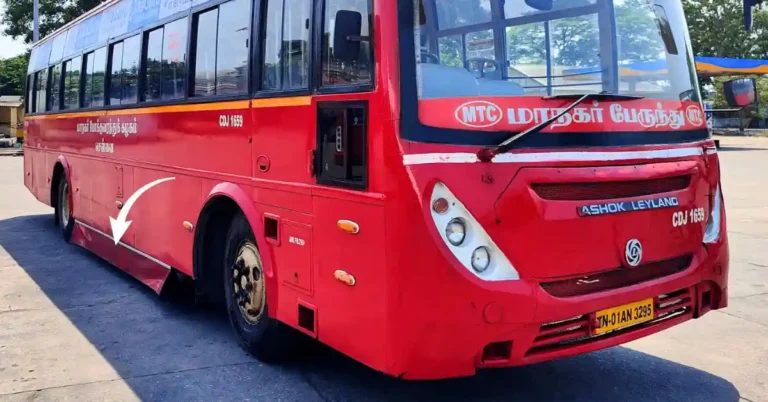
MTC Chennai is Installing Under Run Protection in 2,122 Buses
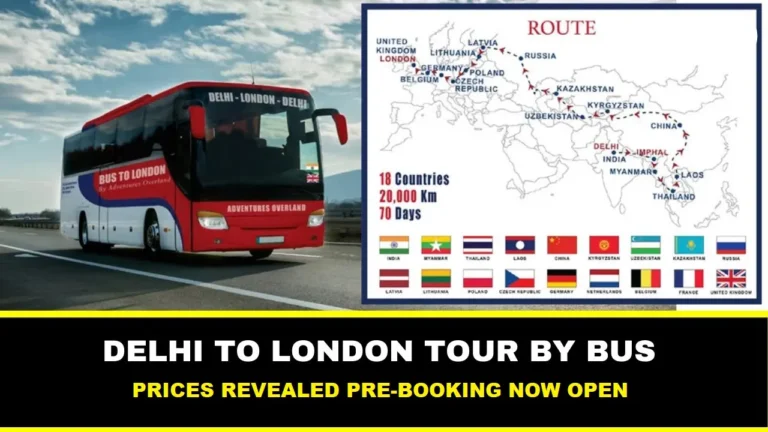
Longest Bus Route in the World – India to London Bus – Date and Price Announced – Pre-Booking Now Open
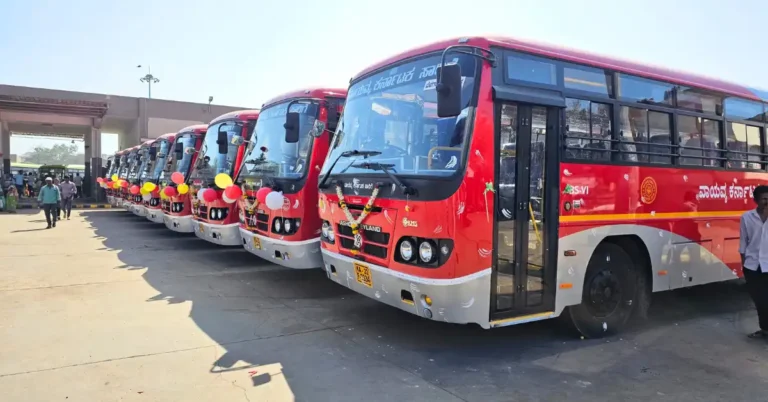
New Launch: NWKRTC Belagavi to Babaladi Route Details
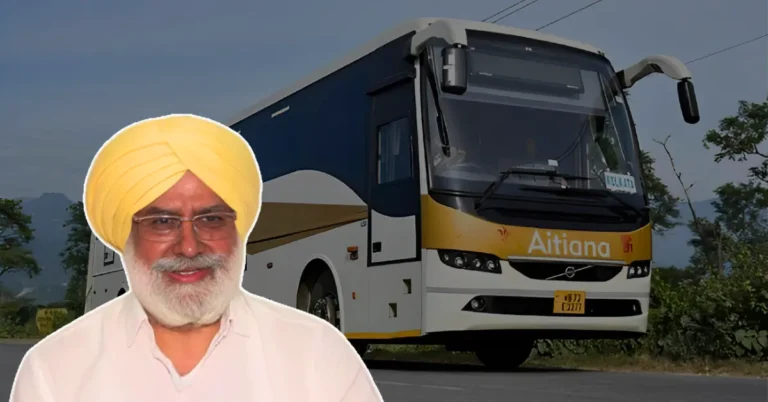
Aitiana Airwings owner was shot inside his own bus – A shocking saga
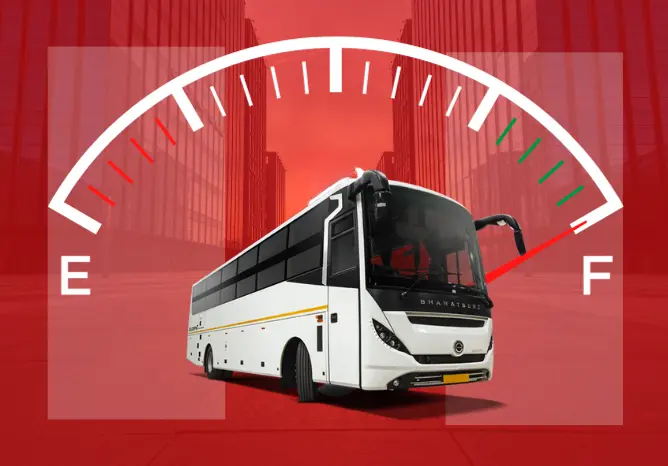
10 Ways to Increase Bus Mileage
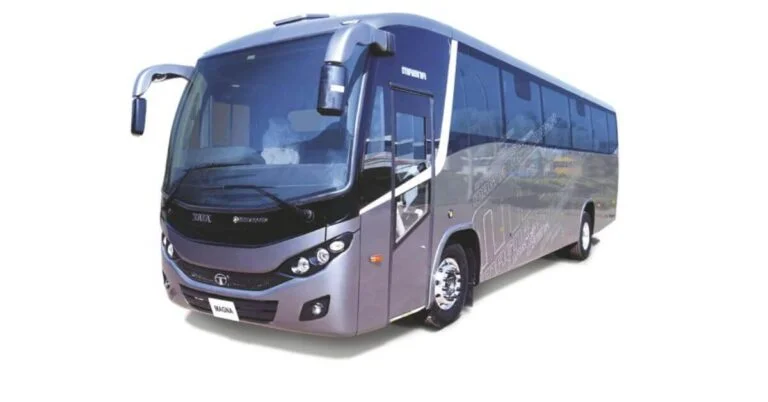
PRAWAAS 2019: BEST TATA BUSES
Leave a reply cancel reply.
Your email address will not be published. Required fields are marked *
Save my name, email, and website in this browser for the next time I comment.
Keep up to date with the Big Issue
The leading voice on life, politics, culture and social activism direct to your inbox.
Free bus travel could lift young people out of poverty and unpick cost of living crisis. Here's how
We’re calling on the next government to introduce free bus travel in England for those aged 23 and under. Here’s why
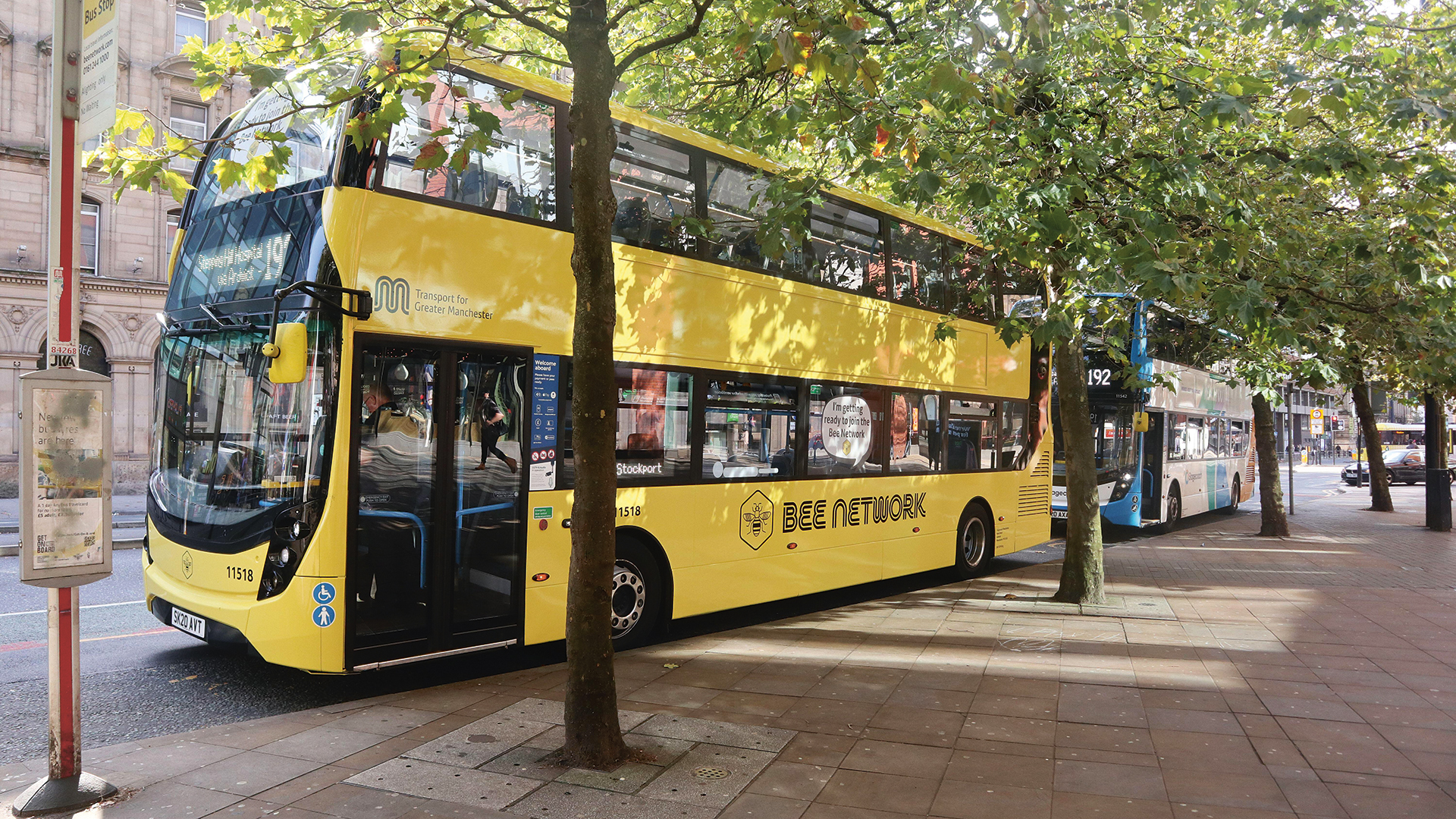
A bus on Manchester’s new Bee Network. Image: Gerard Noonan / Alamy Stock Photo
We all know how expensive public transport is in England. It’s so expensive people fly out of the country and back in because it’s cheaper than taking a train.
But the sky-high costs of trains and buses are not only harming the environment, as people drive or even fly to their destinations – it’s keeping people in poverty during the cost of living crisis.
Last year the Social Market Foundation found that five million of the 13 million people in poverty would be lifted above the poverty line if you took away their transport costs. That’s 8% of the British population.
As part of our Blueprint for Change , the Big Issue is calling on the new government to introduce free bus travel in England for those 23 and under – people for who public transport costs are a real barrier to work.
This would address that issue and it’s better for the environment. As an increased number of bus services leave the private sector – as in Manchester – this becomes easier to implement.
This scheme already functions and delivers in Scotland, with more than 100 million journeys made since the Scottish government introduced free bus travel for under 22s in January 2022. What’s more, a report last year found more than a third (34%) of cardholders have been able to access new opportunities.
The Poverty Alliance, which campaigned for the scheme and now wants to see it extended, said it has given people more freedom in their lives.
Policy and campaigns manager Ruth Boyle told the Big Issue: “When public transport is affordable and accessible it gives people more freedom in their lives. It can be a key that unlocks access to jobs, education, training, childcare, healthcare and other public services, and stronger community connections.
“People in Scotland have told us how much the under-22s’ concessionary bus travel scheme has helped them, and we are pushing for the Scottish government to expand free bus travel even further – starting with people on low-income social security.
“One lesson from Scotland is that we also need investment to make sure buses run where people want, when people want – especially in rural areas. That’s why we have supported moves to bring buses back under regulation and to expand public ownership. We need to put passengers before profit.”
In England the government did introduce a £2 single fare cap on buses to help with the cost of living in 2023, a cost that has since gone up to £2.50. But that scheme ends in November.
And as our reporter discovered in 2022, permanent measures are needed to make bus journeys more accessible.
Silviya Barrett from the Campaign for Better Transport said: “A lack of access to good quality, reliable and affordable public transport is undoubtably a barrier to employment for many young people.
“The introduction of the temporary £2 single bus fare in England has helped make bus travel more affordable and helped to boost passenger numbers, but the scheme is due to end this year. We’d like to see bus fares remain affordable to young people with the introduction of discounted flat fares for children and young people under 22 across England.”
Do you have a story to tell or opinions to share about this? Get in touch and tell us more . Big Issue exists to give homeless and marginalised people the opportunity to earn an income. To support our work buy a copy of the magazine or get the app from the App Store or Google Play .
- Blueprint for Change
- General Election
- learning and employment
- public transport
Support the Big Issue

Recommended for you
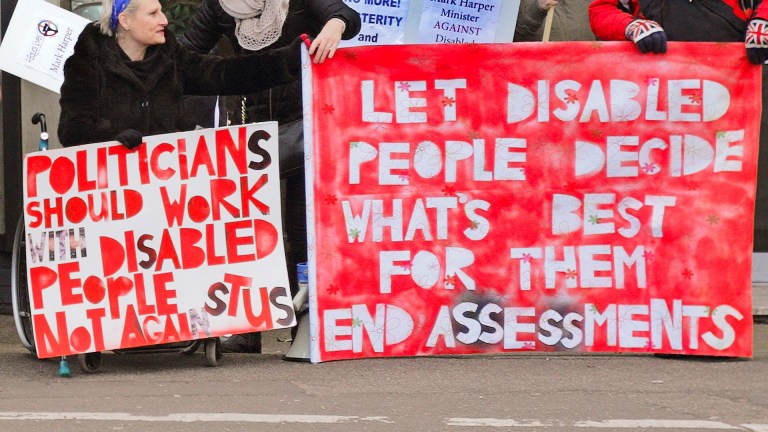
Rishi Sunak says people on benefits don't want to work – here's why that's 'wrong and harmful'
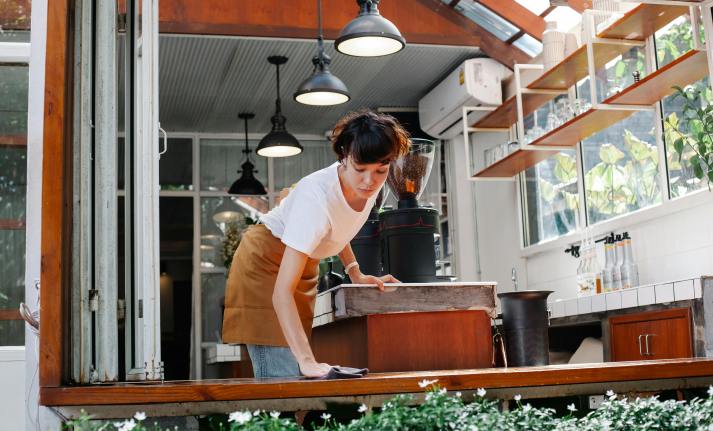
'It's abhorrent they're still allowed': Why zero-hours contracts must be made a thing of the past

Nearly half of brain injury survivors claim benefits – without enough support to get back to work
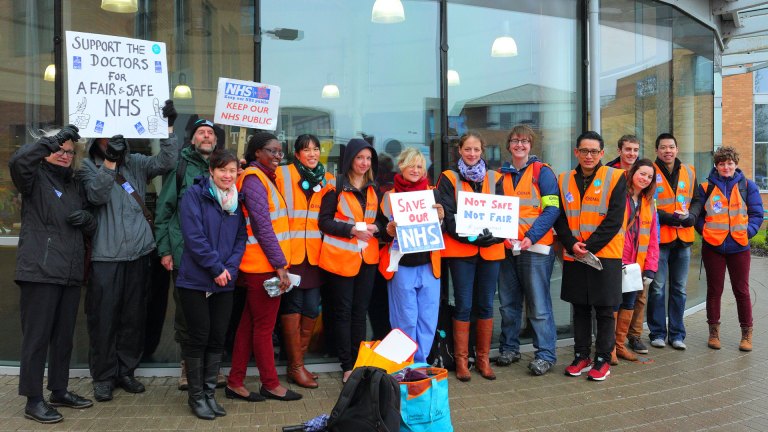
Junior doctors announce five-day strike right before the general election: 'We're fed up'
Most popular.

Renters pay their landlords' buy-to-let mortgages, so they should get a share of the profits

Exclusive: Disabled people are 'set up to fail' by the DWP in target-driven disability benefits system, whistleblowers reveal

Cost of living payment 2024: Where to get help now the scheme is over

Strike dates 2023: From train drivers to NHS doctors, here are the dates to know

IMAGES
VIDEO
COMMENTS
Women are issued zero tickets (a fareless ticket) when they travel in these buses. Among the women passengers who use the Zero-Ticket Travel Scheme (ZTBT), around 52% of them are below the age of 40. The fact that more than 48% of women users are more than 40 years of age indicates the extent to which this scheme benefits older women.
The ambitious Zero-Ticket Bus Travel (ZTBT) scheme for women has achieved its objectives with a two-part survey conducted by the State Planning Commission of Tamil Nadu revealing that it has ...
II. Basic Profile of Passengers who use Zero-ticket travel Scheme Among the women passengers who use Zero-Ticket Travel Scheme (ZTBT), around 52% of them are below the age of 40 (Table 2.1). The fact that more than 48% of women users are more than 40 years of age indicates the extent to which this scheme benefits older women. There are no major
The Zero-Ticket Bus Travel (ZTBT) scheme is aimed at reducing the reliance on public transportation for commutes and other types of travel, and low-income workers were using public transportation ...
The Dravida Munnetra Kazhagam (DMK) government announced the Zero-Ticket Bus Travel (ZTBT) scheme for women in May 2021. Women commuters can travel without paying any fare in government-run buses ...
Overall, the Zero-Ticket Bus Travel (ZTBT) for Women scheme has immensely benefited women passengers in the city of Chennai. It has contributed in terms of increase in savings as well as by helping a section of them increase their mobility. On an average, women passengers who use ZTBT scheme make around 50 trips a
S. Raja Sethu Durai. Free travel for women in the State's ordinary bus services began on May 8. After swearing in as Tamil Nadu Chief Minister on May 7, 2021, M.K. Stalin announced a scheme that enables all working women in the State to travel free of cost in government-owned city and town buses with immediate effect.
Women passengers who use the Zero Ticket Bus Travel (ZTBT) scheme in Chennai save 8%-12 % of their monthly income, says a report submitted by economist Jeyaranjan, vice-chairman of the State ...
Women passengers in Nagapattinam, Maduraiand Tiruppur, who avail themselves of the zero-ticket bus travel scheme, save on an average ₹888 every month, according to a study done by the State ...
Chennai: 'Zero-Ticket Bus Travel Scheme for Women' scheme improved work participation among women, increased savings, and reduced dependency on family members for travel needs, according to a ...
CHENNAI: The Zero-Ticket Bus Travel (ZTBT) scheme for women has achieved its objectives with a survey conducted by the State Planning Commission of Tamil Nadu revealing that it has reduced dependence of women on their family members for mobility and fosters new opportunities for social networks and learning. The survey which was conducted in Chennai, Nagapattinam, Tiruppur, and Madurai ...
Under Tamil Nadu Zero Ticket Bus Travel Scheme, No women have to any fare if they are travelling in Government of Tamil Nadu run buses. Zero Fare Ticket will be issued to women beneficiary at the time of travelling. Free of cost travel in government run buses will only valid up to 30 kilometers. Women Beneficiary has to carry one photographed ...
Around two-thirds of women have saved over Rs 400 a month through the Zero-Ticket Bus Travel Scheme, which was introduced in Tamil Nadu in 2021 to provide free bus travel to women, according to a ...
In reality, the Tamil Nadu government reimburses the service provider on a monthly basis. The government pays a flat fee of Rs 16 for every zero-value ticket that is issued to women and other ...
Nearly 20% of the women reported saving between Rs. 400 and Rs. 600 and another 20% said they saved between Rs. 600 and Rs. 800 per month. This aligns with the savings reported by A Report on the Zero-Ticket Bus Travel Scheme for Women - I, a study by the Tamil Nadu State Planning Commission in June 2022 (a year into the scheme).
The Zero-Ticket Bus Travel (ZTBT) scheme is aimed at reducing the reliance of women on their families for transportation and fostering "new opportunities for social networks and learning." ...
The Rapid Assessment of Tamil Nadu Urban Employment Scheme (New) Evaluation of Semester-End Question Papers of State Universities in Tamilnadu (New) Regional Growth Pattern in Tamil Nadu (New) A Report on the Zero-Ticket Bus Travel (ZTBT) Scheme for Women - Phase-1 (New) A Report on the Zero Ticket Bus Travel( ZTBT) Scheme for Women-Phase-2( New)
The Zero-Ticket Bus Travel (ZTBT) Scheme for Women has proven to be a significant boon for female passengers throughout the State, offering a multitude of advantages. According to a study by the State Planning Commission of Tamil Nadu released in November 2022, the free bus rides for women initiative has proven to be a grand success and helped ...
In England the government did introduce a £2 single fare cap on buses to help with the cost of living in 2023, a cost that has since gone up to £2.50. But that scheme ends in November. And as our reporter discovered in 2022, permanent measures are needed to make bus journeys more accessible.
Answer 1 of 3: Hello I speak no russian so my questions how hard for me to find my way from airport to the bus that will take me to Simferopol ?
Answer 1 of 3: Hello everyone :) I am flying into Krasnodar and then have to travel to Rostov on Don for the World Cup. My flight arrives at 2 am almost. Does anyone know how early the busses run from Krasnodar to Rostov? And approximately how many hours does...
Skip to main content. Discover. Trips
Answer 1 of 5: Going to Krasnodar Russia for my brothers wedding (from St Paul, MN). I will fly from here to JFK to Moscow to Krasnodar for the best deal, even if it is sort of out of the way. The wedding is June 4th. Travisa says not to buy the flights until the...